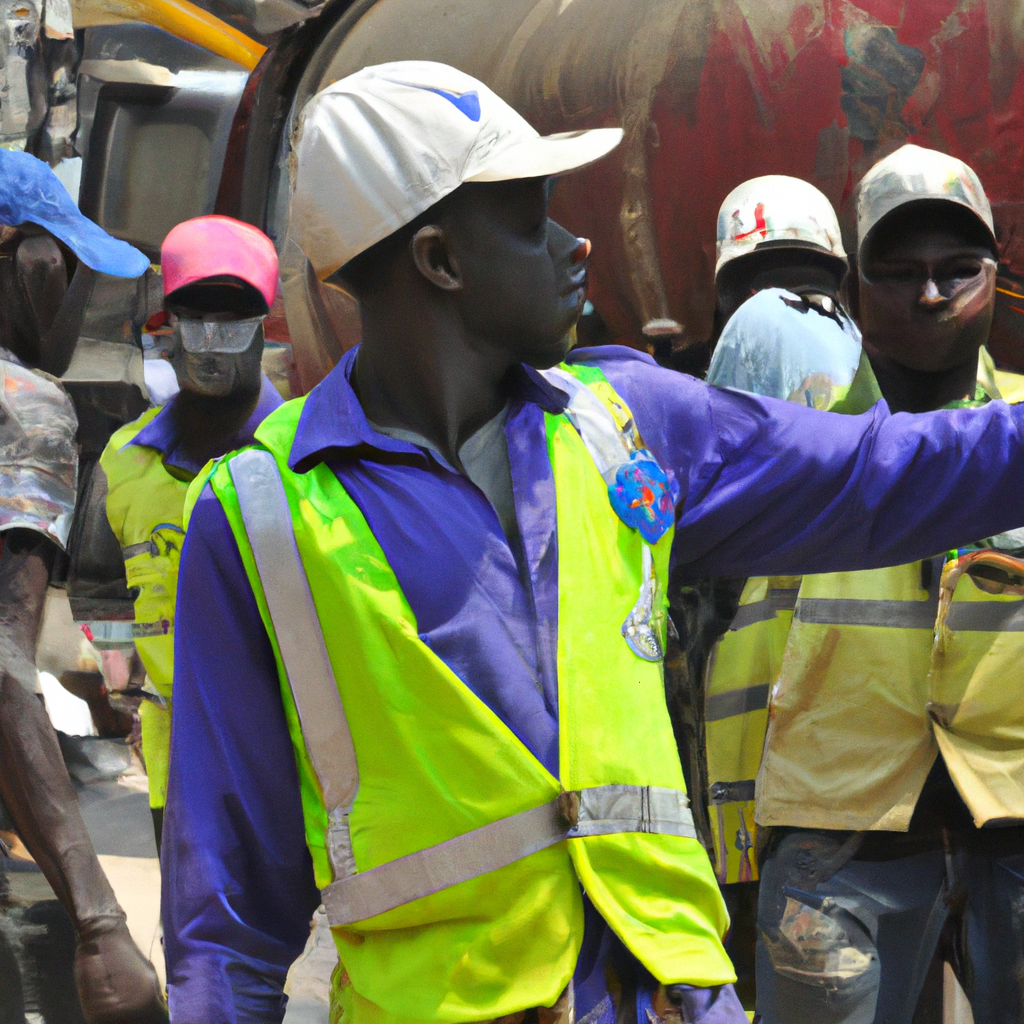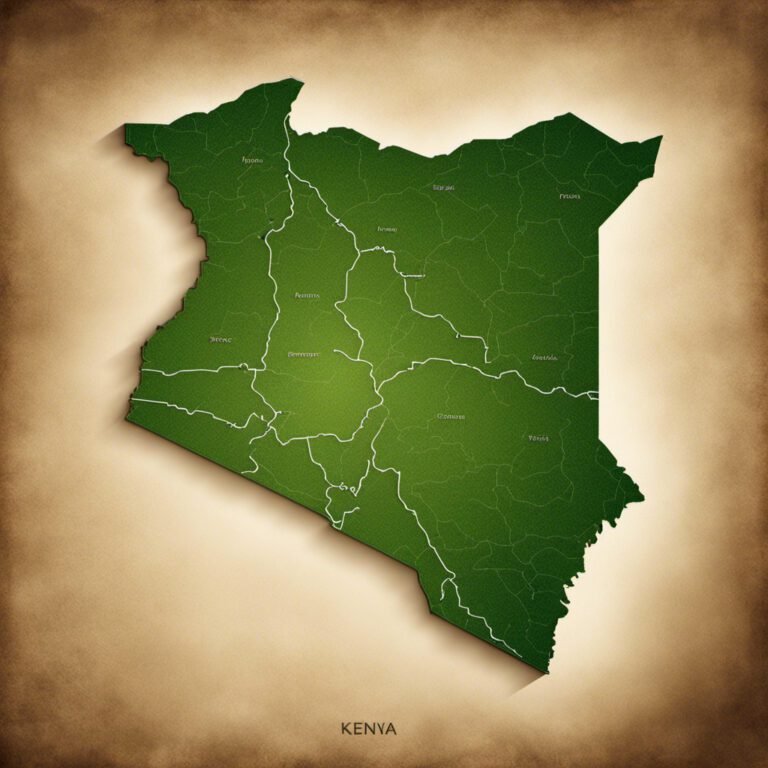What Is The Future Outlook For Kenya’s Development And Progress?
Are you curious about the future of Kenya’s development and progress? Well, look no further! In this article, we will explore the potential outlook for Kenya’s growth and advancement in various sectors. From economic opportunities to infrastructure improvements, we will discuss the potential challenges and opportunities that lie ahead for this vibrant East African nation. So, fasten your seatbelts and get ready to embark on an enlightening journey into the future outlook for Kenya’s development and progress. As a friendly guide, let’s explore the exciting prospects for Kenya’s development and progress, focusing on various key areas. From economic growth to healthcare and disease prevention, from tourism to infrastructure development, Kenya is making significant strides to ensure a brighter future for its people. So, fasten your seatbelts and get ready to dive into the future outlook for Kenya’s development journey!

Economic Growth
Kenya’s economy has been experiencing remarkable growth in recent years, and the future holds even more promise. Emerging sectors and industries are set to play a crucial role in driving this growth forward. With advancements in technology and innovation, Kenya is creating opportunities in areas such as information technology, renewable energy, agriculture, manufacturing, and logistics. By diversifying its economic landscape, Kenya is ensuring sustainable growth and job creation for its citizens.
Furthermore, international trade and investments are set to boost Kenya’s economy further. The government’s commitment to improving its investment climate and attracting foreign direct investment will stimulate economic development. By forging strong trade relations and partnerships with international countries, Kenya will be able to tap into global markets, expand its export opportunities, and attract foreign investments, thereby driving economic growth and creating employment opportunities for its people.
Investment in Infrastructure
A robust infrastructure is the backbone of any thriving economy, and Kenya recognizes the importance of this foundation. Investment in infrastructure development is a key priority for the nation’s progress. With a focus on transportation infrastructure, energy infrastructure, water and sanitation infrastructure, and digital infrastructure, Kenya aims to enhance connectivity and provide a conducive environment for businesses to thrive. Improved roads, ports, railways, and airports will not only facilitate trade and commerce but also drive tourism and regional integration, opening up new opportunities and propelling Kenya’s development.
Technological Advancements
Kenya is embracing technological advancements as a catalyst for progress and innovation. By leveraging digital technologies and promoting a digital economy, the country is fostering a conducive environment for startups and entrepreneurship. Access to high-speed internet, digital skills training, and innovation hubs are nurturing a generation of tech-savvy individuals who are taking Kenya to new heights. The future holds tremendous potential for the application of technologies such as artificial intelligence, blockchain, and Internet of Things, which will revolutionize various sectors and drive economic growth.
Education and Workforce Development
Investing in education and workforce development is crucial for Kenya’s sustainable development. Improving access to education is a top priority, ensuring that every child has the opportunity to learn and develop their skills. The government is working towards eliminating barriers to education, such as addressing gender disparities and promoting inclusive education. By enhancing technical and vocational training, Kenya aims to equip its youth with the skills needed to meet the demands of emerging industries and boost employment prospects.
Moreover, promoting innovation and research is vital to drive economic growth and sustainable development. By creating an environment that fosters research and innovation, Kenya can encourage the development of new technologies, products, and services that will fuel economic advancement.
Addressing youth unemployment is another crucial aspect of education and workforce development. Promoting job creation through entrepreneurship and start-ups, encouraging civic participation, and investing in youth-friendly services will empower the younger generation to contribute effectively to Kenya’s progress and shape the future they desire.

Poverty Reduction and Social Welfare
Kenya is committed to poverty reduction and social welfare, ensuring that no citizen is left behind. Enhancing social safety nets is a vital step towards this goal. By implementing comprehensive social protection programs, Kenya aims to provide support and assistance to vulnerable populations, ensuring their well-being and improving their livelihoods. This includes measures such as cash transfers, healthcare subsidies, and food assistance programs.
Agricultural transformation and food security are also critical components of poverty reduction. By focusing on modernizing and improving agricultural practices, Kenya aims to increase productivity, enhance food production, and reduce dependency on imports. This will not only improve food security but also create employment opportunities in the agricultural sector, ultimately reducing poverty and improving living standards.
Promoting gender equality and women empowerment is another key priority in Kenya’s development journey. By creating an enabling environment that supports women’s participation in the economy and decision-making processes, Kenya aims to harness the full potential of its female population. Initiatives such as access to education, financial services, and entrepreneurship support will empower women and contribute to the overall development of the nation.
Political Stability and Governance
A stable political environment and good governance are essential for sustainable development. Kenya is focused on consolidating democracy by upholding the principles of transparency, accountability, and inclusivity. By promoting citizen participation, ensuring free and fair elections, and protecting human rights, Kenya is building a foundation for a politically stable and progressive nation.
Strengthening the rule of law is crucial for maintaining social order and ensuring justice for all. By promoting an independent and efficient judiciary system, Kenya is working towards a society where the rule of law is upheld, fostering trust and confidence in the legal system.
In the fight against corruption, Kenya recognizes the importance of integrity and accountability. Through various anti-corruption initiatives, the government is committed to eradicating corruption, promoting transparency, and ensuring public resources are utilized for the benefit of all citizens.
Devolving power to local governments is a strategic move to enhance governance at the grassroots level. By empowering county governments, Kenya aims to bring services closer to the people, improve public service delivery, and promote local economic development.
Environmental Sustainability
Preserving Kenya’s natural resources and ensuring environmental sustainability is a crucial aspect of its development agenda. Conservation and protection of natural resources are key priorities, aiming to safeguard Kenya’s rich biodiversity and ecosystems. Efforts are being made to combat deforestation, protect wildlife, and promote sustainable land management practices.
Expanding renewable energy is another crucial step towards environmental sustainability. Kenya’s potential for renewable energy, particularly in geothermal, wind, and solar power, is vast. By investing in renewable energy infrastructure, Kenya can reduce its reliance on fossil fuels, mitigate climate change, and ensure a greener and cleaner future.
Climate change adaptation is essential to protect vulnerable communities from the adverse impacts of climate change. By implementing strategies and policies that enhance climate resilience, Kenya aims to safeguard its citizens, particularly those in agricultural and coastal regions, from the challenges posed by climate change.
Sustainable agriculture and food production play a significant role in environmental sustainability as well. By promoting climate-smart agricultural practices, reducing post-harvest losses, and improving agricultural productivity, Kenya can ensure food security while minimizing the environmental footprint of the agricultural sector.
Infrastructure Development
With a focus on transportation infrastructure, Kenya is working towards improving connectivity and driving economic growth. The development of modern transport systems, including roads, railways, ports, and airports, will facilitate the movement of goods and people, attracting investments, boosting trade, and driving regional integration.
Energy infrastructure is a critical component of Kenya’s development plans. By investing in renewable energy and expanding access to electricity, Kenya aims to improve energy security, catalyze economic growth, and enhance the well-being of its citizens. Embracing renewable energy will not only reduce greenhouse gas emissions but also ensure affordable and reliable energy for all.
Water and sanitation infrastructure are key priorities for Kenya’s development journey. By improving access to clean water and sanitation facilities, Kenya aims to enhance public health, reduce waterborne diseases, and ensure the well-being of its citizens. Proper sanitation infrastructure is crucial for maintaining a clean and healthy environment for all.
Digital infrastructure is the backbone of a modern and connected society. By investing in high-speed internet connectivity, improving digital literacy, and promoting e-commerce, Kenya is creating a platform for digital innovation, entrepreneurship, and economic growth. The future holds great potential for the digital economy, with Kenya positioning itself as a leading player in digital transformation.
Tourism and Cultural Heritage
Kenya’s rich cultural heritage and natural beauty make it a prime destination for tourism. The government recognizes the potential of tourism as a driver of growth and is investing in strategies to promote and develop this sector. By showcasing its diverse cultural heritage, preserving historical sites, and protecting wildlife, Kenya aims to attract tourists from around the world and generate revenue that will contribute to the economy.
Preserving and promoting cultural heritage is also a key priority for Kenya. By safeguarding traditional practices, languages, and artifacts, Kenya aims to preserve its unique cultural identity and promote cultural tourism. This not only serves as a source of pride for Kenyans but also creates opportunities for cultural exchange and understanding.
Sustainable tourism practices are crucial for protecting Kenya’s natural resources and ensuring long-term benefits. By promoting responsible tourism, Kenya aims to minimize the negative impacts of tourism on the environment while maximizing the positive socio-economic effects. Initiatives such as eco-tourism, community-based tourism, and wildlife conservation efforts are integral to sustainable tourism practices.
Investing in hospitality and tourism infrastructure is essential to accommodate the growing number of tourists. By developing world-class hotels, resorts, and tourism facilities, Kenya aims to provide exceptional experiences to visitors, boost the tourism sector, and create employment opportunities for its citizens.
Youth Engagement and Empowerment
Kenya’s youth are a valuable asset in driving the country’s development journey. By promoting youth entrepreneurship and start-ups, Kenya aims to unleash the innovative potential of its young population. By providing access to funding, business development support, and mentorship programs, Kenya is empowering its youth to become job creators and contributing to economic growth.
Encouraging civic participation is crucial for building an engaged and responsible citizenry. Kenya recognizes the importance of involving young people in decision-making processes and creating platforms for their voices to be heard. By promoting youth-led initiatives, participatory governance, and youth representation in various sectors, Kenya is nurturing a generation of active and responsible citizens.
Promoting leadership and skills development is an integral part of youth empowerment. By investing in leadership programs, mentorship initiatives, and skills training, Kenya aims to equip its young population with the necessary tools to succeed in the modern world. By nurturing the talents and aspirations of its youth, Kenya is creating a pool of skilled individuals who will contribute to the nation’s progress.
Investing in youth-friendly services is crucial for addressing the unique needs and challenges faced by young people. By providing accessible healthcare, education, employment services, and recreational facilities, Kenya aims to create an enabling environment that supports the holistic development and well-being of its youth.
Healthcare and Disease Prevention
A strong and resilient healthcare system is vital for the well-being of a nation. Kenya is committed to strengthening its healthcare systems to provide quality healthcare services for all its citizens. By investing in healthcare infrastructure, training healthcare professionals, and improving access to healthcare facilities, Kenya aims to ensure that its people can lead healthy and productive lives.
Enhancing disease surveillance and response is crucial for preventing and managing outbreaks. By investing in healthcare technology and systems, Kenya can detect and respond to infectious diseases more effectively, ultimately protecting its citizens from the threat of epidemics.
Expanding access to vaccines and essential medicines is a priority for Kenya’s healthcare system. By improving vaccination coverage, providing affordable and accessible medicines, and strengthening supply chain management, Kenya aims to address public health challenges and ensure that its citizens have access to life-saving interventions.
Investing in research and development is crucial for the advancement of healthcare and medical science. Kenya is committed to fostering a culture of research and innovation in healthcare. By supporting medical research institutions, promoting collaboration with international partners, and investing in cutting-edge technology, Kenya aims to develop innovative healthcare solutions that will benefit its citizens and contribute to global health outcomes.
Foreign Relations and International Cooperation
Kenya recognizes the importance of regional integration and international cooperation in achieving its development goals. Strengthening regional integration is a priority, reflecting Kenya’s commitment to deeper cooperation within the East African Community (EAC) and the African Union. By promoting trade, harmonizing policies, and developing infrastructure links, Kenya aims to enhance regional economic integration, create opportunities for cross-border trade, and foster peace and stability in the region.
Trade relations and partnerships with international countries are crucial for Kenya’s economic growth and development. By fostering mutually beneficial trade agreements, Kenya can expand its export markets and attract foreign investments. By positioning itself as a favorable investment destination and nurturing strong diplomatic ties, Kenya aims to tap into global opportunities and diversify its economic landscape.
Foreign aid and development assistance play a significant role in supporting Kenya’s development efforts. By collaborating with international partners, Kenya can access resources, knowledge, and technical expertise that can facilitate its development journey. Through constructive partnerships, Kenya aims to address development challenges, including poverty, education, healthcare, and infrastructure, while promoting peace and security in the region.
Promoting peace and security is an integral part of Kenya’s foreign relations agenda. By actively participating in regional and international peacekeeping efforts, Kenya aims to contribute to global peace and security. Through diplomatic engagements, Kenya advocates for peaceful resolutions to conflicts, fostering stability within the region and beyond.
In conclusion, Kenya’s future outlook for development and progress is bright and promising. From economic growth and infrastructure development to education and workforce development, from poverty reduction to environmental sustainability, Kenya’s comprehensive approach to development encompasses various key areas that will shape its future. With a focus on innovation, inclusivity, and sustainability, Kenya is paving the way for a brighter and more prosperous future for its people. So, let’s join hands together and witness the remarkable transformation of Kenya in the years to come!






